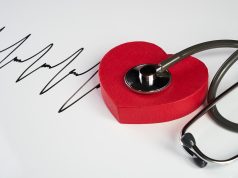Age alone should not be a barrier, researchers say
WEDNESDAY, June 24, 2015 (HealthDay News) — Fewer than one in 10 older myocardial infarction (MI) survivors receive a potentially lifesaving implantable cardioverter-defibrillator (ICD), according to a new study published in the June 23/30 issue of the Journal of the American Medical Association.
Sean Pokorney, M.D., a cardiology fellow at the Duke University School of Medicine in Durham, N.C., and colleagues collected data on 10,318 MI patients, average age 78, with low ejection fraction who were listed in a national cardiovascular data registry.
The cumulative one-year ICD implantation rate was 8.1 percent. Patients receiving ICD implantation were more likely to have prior coronary artery bypass graft procedures, higher peak troponin levels, in-hospital cardiogenic shock, and cardiology follow-up within two weeks after discharge. The researchers also found that patients who got ICDs had a one-third lower risk of death after two years than those who didn’t get one. “Our results are encouraging, since defibrillators in older patients were associated with the same amount of benefit as in younger patients in the clinical trials,” Pokorney told HealthDay.
One barrier is the cost of the device, which can run from $25,000 to $30,000, according to a recent study. However, for Americans aged 65 and older the cost is covered by Medicare, Pokorney said. Perhaps the biggest contributor to the low rate of ICD use is a lack of communication and coordination after hospital discharge.
Pokorney has received support in the past from Boston Scientific, a maker of ICDs.
Copyright © 2015 HealthDay. All rights reserved.








